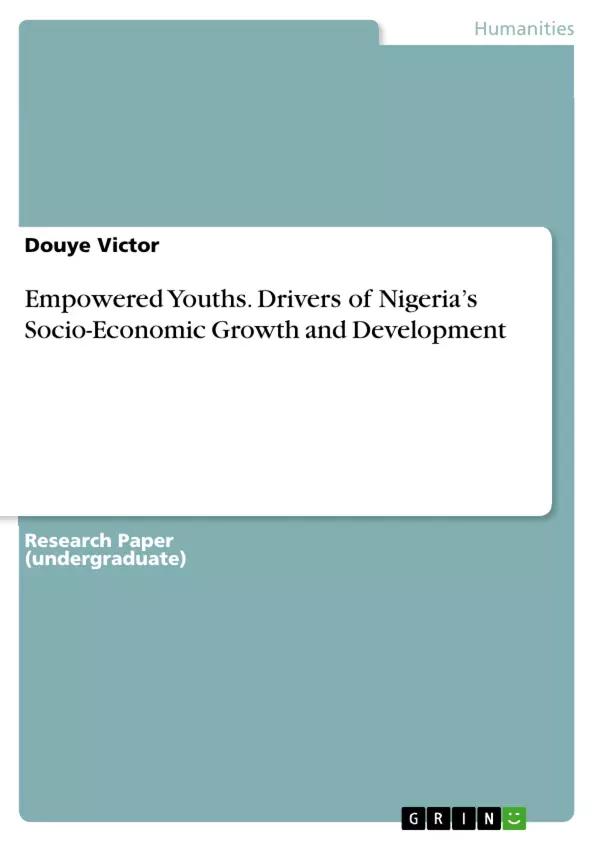The popular Aphorism; ‘Black is not synonymous to lack” is constantly brought to check every time the media reveals disheartening news and clips of poverty-ravaged places in Nigeria. Like it or not, current statistics globally relates the black race to skyrocketing levels of wants and poverty.
It is forever bewildering when the stats are brought up and a country such as Nigeria- the supposed giant of Africa sits amidst nations perishing in the loosed hands of poverty. It is more perplexing when the resources in the country are taken into consideration. Consisting of virtually all kinds of raw materials capable of changing the socio-economic phase of her people, it is distasteful that a large set of Nigerians live in abject poverty.
In a bid to counter the problem at hand, some ‘well-Meaning-Nigerians’ has proffered that the wretched climate of the nation is attributed to the fact that the nation is barely young when compared to other civilizations and hence must not be viewed on a parallel basis. This statement however, is not entirely true as it will spell folly on the nation if we wait to be over Three hundred (300) years before expecting significant change. In my own outlook, we stand a better chance than any nation in the world today. We have the experiences of these nations to learn from, a bountiful land arguably the most blessed in terms of mineral and agricultural resources, and above all, a whooping youthful population capable of rejuvenating the socio-economic facade of the nation.
For a country having all it takes to be a major world power, it is typical to wonder why her current status quo says otherwise. It is not with all the acumen in the world if the issues constraining her socio-economic redundancy is attributed to a direct negligence to the Nigerian youth. The youth remains the active set of individuals and thereby responsible for nation building.
I consider the Nigerian youth as a fragile bomb. If handled carefully, they possess the prowess to deliver the nation into victory over her socio-economic hurdles. Likewise, neglect will spell catastrophe on the socio-economic development of the nation as they find solace in antisocial vices.
Inhaltsverzeichnis (Table of Contents)
- INTRODUCTION
- CONCEPTUAL CLARIFICATIONS
- Youth
- Youth Empowerment
- Socio-Economic Development
- YOUTH EMPOWERMENT AND NATIONAL DEVELOPMENT.
- CONCLUSION..
- RECOMMENDATIONS
- REFERENCES
Zielsetzung und Themenschwerpunkte (Objectives and Key Themes)
This thesis examines the critical role of youth empowerment in driving socio-economic growth and development in Nigeria. The work emphasizes the importance of equipping and empowering Nigerian youth to address the challenges of poverty, unemployment, and social instability, ultimately contributing to national progress.
- The significance of youth empowerment in national development
- The impact of unemployment on youth engagement and national progress
- The challenges and opportunities associated with youth empowerment in Nigeria
- The role of government and civil society in empowering Nigerian youth
- The connection between youth empowerment and sustainable socio-economic growth
Zusammenfassung der Kapitel (Chapter Summaries)
- INTRODUCTION: This chapter explores the current socio-economic realities of Nigeria, highlighting the challenges of poverty and unemployment. The author argues that the country's youthful population holds significant potential for driving positive change and achieving sustainable development.
- CONCEPTUAL CLARIFICATIONS: This chapter provides definitions of key terms, such as "youth," "youth empowerment," and "socio-economic development." The author discusses the varying interpretations and cultural contexts surrounding these concepts.
- YOUTH EMPOWERMENT AND NATIONAL DEVELOPMENT: This chapter delves into the critical relationship between youth empowerment and national development. The author emphasizes the need to address the challenges of unemployment and poverty, which significantly hinder youth participation in nation-building.
Schlüsselwörter (Keywords)
This research focuses on key concepts such as youth empowerment, socio-economic development, unemployment, poverty, national development, and the role of Nigerian youth in achieving sustainable progress. The work explores the challenges and opportunities associated with youth empowerment in a developing nation, aiming to contribute to a better understanding of how to harness the potential of young people for a brighter future.
- Quote paper
- Douye Victor (Author), 2019, Empowered Youths. Drivers of Nigeria’s Socio-Economic Growth and Development, Munich, GRIN Verlag, https://www.grin.com/document/454052



